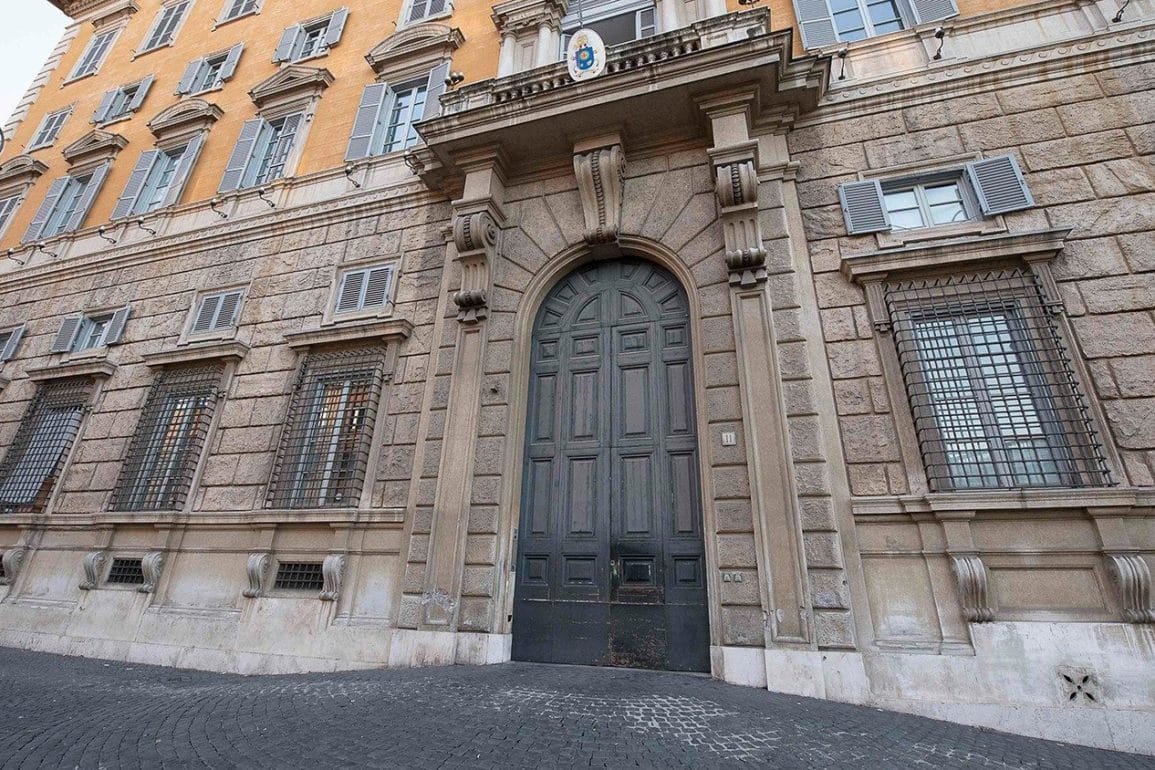Pope Francis promulgated a new version “Rules on the Most Serious Crimes Reserved to the Congregation for the Doctrine of the Faith,” the “delicta graviora,” reported today, December 7, 2021, the Holy See Press Office.
It’s a new step of the Holy Father against the most serious crimes that injure the Church. The text, promulgated by John Paul II in 2001 and amended by Benedict XVI in 2010, has now been modified and updated by Pope Francis. It should be clarified that the crimes referred to in the rules continue to be the same. Nevertheless, with the change made, in the first place, the rules have been harmonized with Book VI of the Code of Canon Law, promulgated in the Motu Proprio Pascite Gregem Dei of May 23, 2021, which comes into force on December 8, 2021. A mutual adaptation and incorporation have been made of the new canons to the rules.
In the second place, the desire is to incorporate the numerous regulatory measures of different kinds, dictated especially since 2016 up to the present, for example, the Motu Proprio “As a Loving Mother,” the Motu Proprio Vos Estis Lux Mundi, and the two rescripts of December 2019, geared to a more safe and incisive criminal protection of the greatest goods of the Church: the faith, the holiness of the Sacraments, the life of the weakest people that have limited means of protection: minors and adults with habitual imperfect use of reason.
In the third place, it intends to improve the Church’s criminal action regarding crimes reserved to the Congregation, including the most serious against morality and the celebration of the Sacraments, readapting the practice of the rules of the last years, in the light of the 20 years of procedural experience that have elapsed since the first Normae of 2001.
For example, “Vatican News” points out that the 2010 rules gave priority to the judicial process, leaving the extra-judicial process — also known as “administrative” — as an exception. Now, instead of describing one as a rule and the other as an exception, giving priority to the first, the second is also put into practice. The possibility has also become a rule (and it’s no longer just a practice) to decree the destitution of the clerical state ex officio, without trial, also for cases against the faith, for example, that of a priest who adheres to a schismatic community bypassing the judgment.
In fact, in this period of time — especially since 2016 up to the present — there have been numerous regulatory measures of different kinds, geared to a safer and more incisive criminal protection of the greatest goods of the Church: the faith, the holiness of the Sacraments, the life of the weakest people that have few means of protection: minors and adults with habitual imperfect use of reason.
As already mentioned, the 2021 rules do not introduce any new crimes reserved to the Congregation for the Doctrine of the Faith, retaining without changes the typification of the crimes contained in the 2021 text and now present in its totality in Book VI of the CPI.
In the main, the changes introduced refer to procedural aspects, geared to clarifying and facilitating the correct criminal action of the Church in the administration of justice.
Following is a résumé of the most important changes introduced in the regulatory text:
- The canons are updated in keeping with Book VI of the CIC, which comes into force on December 8, 2021;
- The regulatory changes introduced by the Rescripta ex Audientia mi of December 3 and 6 of 2019;
- A clearer distinction is made between the judicial process (can. 1721 CIC and can. 1472 CCEO) and the procedure by decretum extra iudicium (also called “extrajudicial”: can. 1342 paragraph 1 and 1720 CIC and can. 1486 CCEO), which did not seem to be sufficiently highlighted in the previous text;
- The possibility is foreseen of referring directly to the Pope’s decision, in virtue of the destitution or deposition of the clerical state, as well as the dispensation from the law of celibacy and — in his case — of the religious vows; also the particularly serious cases of crimes contra fidem (article 2);
- The deadlines were modified to file an appeal after the judgment of first instance (from one month to 60 days), to homologize the judicial procedure with the extrajudicial, given that the previous legislation, which differentiated the deadlines, often led to error, with the consequent negative repercussions in the right of defense.
- The necessity is established that a patron asssit the accused in the trial phase, clause that is already included in the Regulation of the College for the examination of the relative resources in the matter of delicta graviora (article 6), in order to guarantee ultimately the right of defense of the accused.
Translation by Virginia M. Forrester










